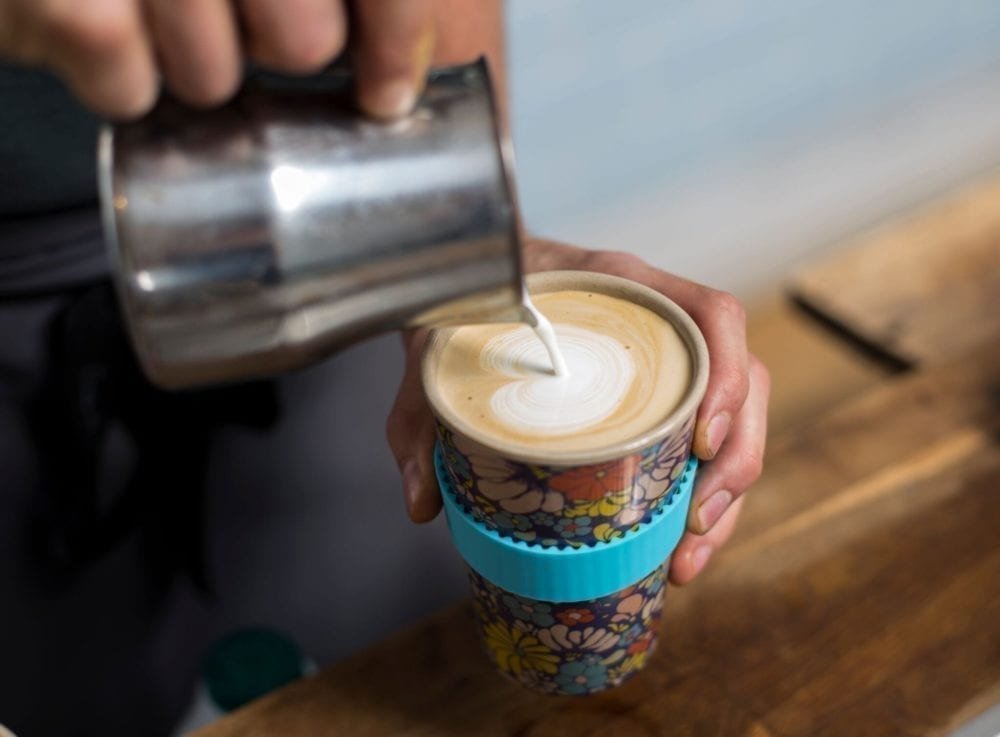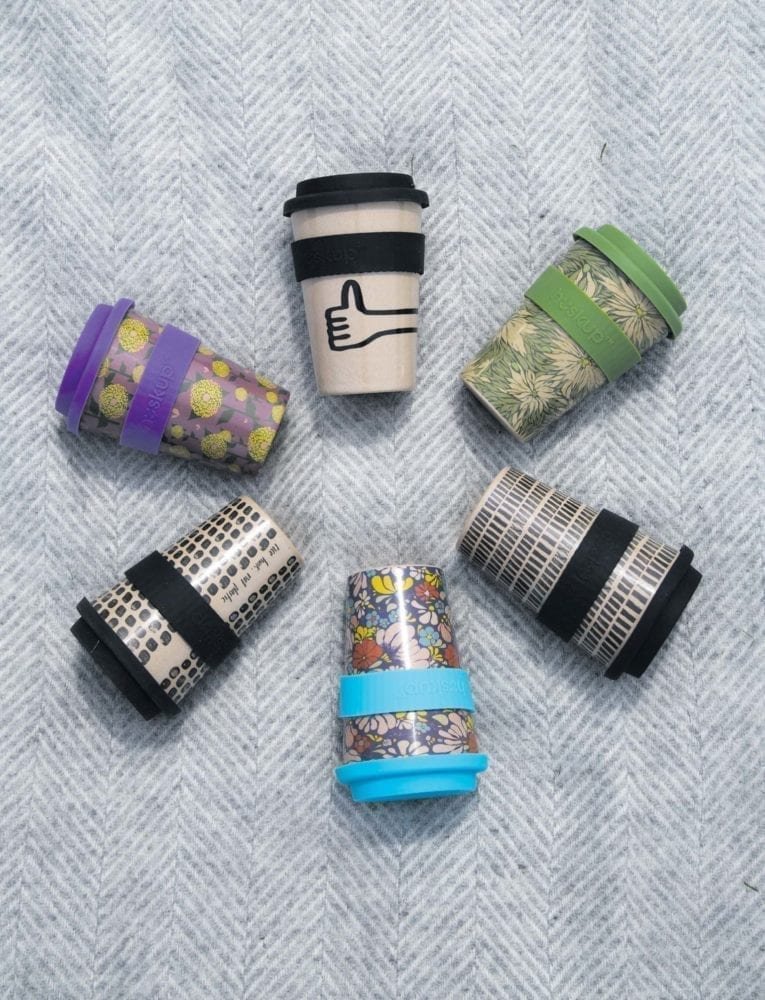This article first appeared in our summer ’18 issue of MyGreenPod Magazine, The Natural Revolution, distributed with the Guardian on 03 Aug 2018. Click here to subscribe to our digital edition and get each issue delivered straight to your inbox
Each day we bin up to 7m disposable coffee cups. Vast, non-renewable resources are required to create, deliver and dispose of single-use cups that are used for minutes but last for centuries.
From Hugh Fearnley-Whittingstall to Sir David Attenborough, some of our national treasures have helped raise public awareness of the single-use plastics problem and mobilise consumers to demand change. We’re a nation of coffee lovers, but we’re also a society that’s decided to reject single-use plastics.
The rise of the eco cup
Reusable coffee cups have been around for some time, but thanks to public demand they’re now a lot more common. ‘Eco’ cups have been launched in every colour of the rainbow, using materials ranging from BPA-free plastic to glass, porcelain and bamboo.
Reusing a coffee cup is better than creating single-use waste or recycling – but, like any product, each eco coffee cup leaves its own footprint.
Plastic is a very common component of reusable coffee cups – and we all know the issues with that – and while glass can be reused it’s not always the best option when you’re on the go. Bamboo makes use of a natural material, but unfortunately many of these cups are formed using a plastic, like melamine.
Richard Milton, founder of Huskup, set out to find an alternative solution. ‘As demand grows’, he tells us, ‘we also needed a better solution to make sure we don’t replace the 2.5bn takeaway cups that are discarded each year in Britain with reusable coffee cups that use yet more plastic – it doesn’t seem right to have plastic as part of the solution.’
A plastic-free solution
Huskup came to market earlier this year. It’s a reusable coffee cup made from one of the world’s most abundant food waste materials: the humble rice husk.
The Huskup doesn’t contain any plastic and can fully biodegrade at the end of its life. You can reheat coffee in your Huskup without any fear of nasty chemicals leaching into your drink.
The cups are microwave and dishwasher safe, and tough enough to withstand temperatures of -30ºC to 120ºC. They’re not indestructible, but if you look after your Huskup it should last for years. It’s certified to European compostability standards (EN 13432); if, at the end of its useful life, it should ever get into the land or sea, it won’t break down into microplastics or get into the food chain.
By taking natural agricultural waste from earth to earth, the Huskup addresses our takeaway cup crises without the drawbacks associated with some other reusable cups. ‘If we can avoid plastic in the first place’, Richard explains, ‘then we won’t have the problems associated with it.’
 Play Video about This Rock Might Just Save The World
Play Video about This Rock Might Just Save The World Play Video about Play 2 hours of rock
Play Video about Play 2 hours of rock Play Video about Play 2 hours of brook
Play Video about Play 2 hours of brook Play Video about Play 2 hours of sheep
Play Video about Play 2 hours of sheep












































